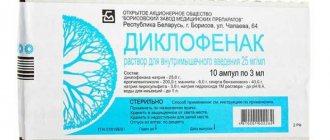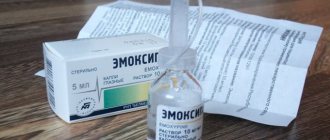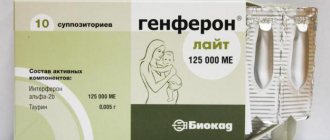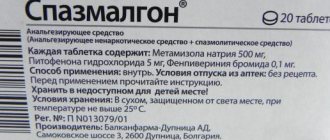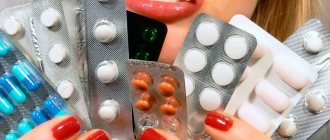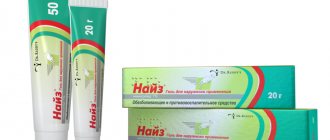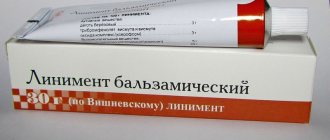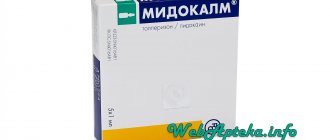Category: Published 10/31/2016 · Comments: · Reading time: 4 min · Views: 8,279
“Panangin”, what does this drug help with, replenishing the lack of potassium and magnesium in the body? The medicine affects metabolism. The instructions for use recommend taking Panangin tablets for heart failure and myocardial infarction.
Composition and release form
Produced in tablet form and in solution. The active elements of the drug "Panangin", which helps with heart disease, are magnesium and potassium aspartate. Their content in the tablet is 140 and 158 mg, respectively. Excipients include magnesium stearate, silicon dioxide, starch and other components.
The concentrate for the preparation of intravenous solution contains 40 mg of magnesium, 45.2 mg of potassium aspartate and injection water. They also produce Panangin Forte tablets, which are distinguished by double the content of potassium and magnesium.
What are the benefits of magnesium?
It is impossible to clearly answer the question of what is the main task of this substance in the functioning of the vital systems of the body. After all, potassium is one of the most important cofactors in more than 310 enzymatic reactions, such as the synthesis of nucleic acids and proteins, as well as energy metabolism.
Magnesium also has a positive effect on the cardiovascular system: it reduces the contractility of myocytes of smooth muscle tissue of arterioles. This effect leads to normalization of coronary blood flow and vasodilation. As a result, heart rate improves and myocardial oxygen demand decreases. In other words, magnesium has an anti-ischemic effect on cardiac muscle tissue.
Pharmacological properties
Panangin tablets, what do they help with? The medicine is a valuable source of potassium and magnesium, normalizes metabolic processes in the body. These substances affect the functioning of the heart and other human organs. Magnesium and potassium are involved in the work of many enzymes. They are responsible for muscle contraction. Microelements are of great importance for the functioning of the heart muscles.
With a prolonged lack of ions, metabolic changes develop in the myocardium, and arterial atherosclerosis and hypertension may occur. With potassium deficiency, the toxicity of cardiac glycosides increases, tachycardia and arrhythmia develop. Magnesium is responsible for the reproduction of proteins and nucleic acids. It takes part in most energy metabolic processes.
Thanks to it, the frequency of contractions and tension of the heart muscle decreases. The ion has an anti-ischemic effect on myocardial structures. Potassium and magnesium have a relationship, so both are present in the medicine "Panangin". Typically, the body lacks both substances. With joint correction of ions, the toxicity of cardiac glycosides decreases and an inotropic and additive effect appears.
By
Description of the medicine
The drug is available in tablet form and in the form of ampoules for placing IVs. The active ingredients are magnesium and potassium. The composition also includes auxiliary components; they form the shell of the medicine. There is nothing superfluous in liquid form - basic microelements, water.
Who is the medication indicated for?
The drug is prescribed for the development of diseases of the cardiovascular system, to prevent heart pathologies. The purpose of the prescription determines how long Panangin is taken, the regimen and dosage regimen.
The intended use of the drug is:
- heart failure;
- hypokalemia;
- hypomagnesemia;
- loose stools (as an auxiliary therapy for dehydration);
- heart attack;
- prolonged vomiting;
- arrhythmia;
- as an auxiliary therapy when the drug is taken to increase the tolerance of cardiac glycosides.
The medication is prescribed by a cardiologist after undergoing tests that indicate the presence of a deficiency of essential substances that stimulate the proper functioning of the heart or pathologies of the organ.
Possible negative reactions of the body
With an incorrect dosage regimen or uncontrolled self-administration, side effects may occur.
They appear in:
- redness of the skin of the face;
- convulsions;
- nausea, vomiting;
- dizziness;
- inflammation of chronic diseases associated with cholecystitis, gastritis;
- heat, sweat;
- hypotension;
- deterioration, difficulty breathing.
Contraindications
The medicine is popular and is taken as a prevention of cardiovascular diseases, but you should not use it on your own. A course of taking Panangin may be prohibited if the patient has deviations described in the instructions for the drug.
It is strictly forbidden to carry out self-treatment with medication for:
- AV blockade I-III stage;
- intoxication;
- excess potassium and magnesium;
- destruction of red blood cells with the release of hemoglobin;
- a sharp decrease in pressure;
- dehydration of the body;
- kidney failure of any form;
- acute metabolic acidosis;
- severe myasthenia gravis.
The drug in the form of tablets is used while expecting a baby and lactation with caution and only according to the doctor’s indications. When administered intravenously, the medicine is completely contraindicated in women who are pregnant or breastfeeding.
Medicinal properties
The medication has a number of positive properties necessary for patients with heart pathologies. A lack of microelements leads to disruption of the heart rhythm and metabolic disorders in the functioning of the organ. The patient may suffer from shortness of breath, rapid heartbeat, pain, and discomfort in the cardiac region. Tests reveal plaques forming in the coronary arteries.
According to cardiologists, the correct duration of treatment with Panangin and the prescribed dose allow one to achieve positive results. They manifest themselves in a decrease in the contractility of the heart muscle, which is important for arrhythmia. In a patient, with constant use of the medicine, the toxic properties of cardiac glycosides increase, and the heart rhythm of the organ is restored.
Panangin tablets: what do they help with?
Indications for the use of the drug include the following diseases and conditions:
- hypokalemia;
- myocardial infarction;
- hypomagnesemia;
- heart failure;
- diarrhea;
- prolonged vomiting;
- paroxysmal tachycardia;
- digitalis intoxication;
- supraventricular tachycardia;
- atrial and ventricular extrasystole.
The medicine is prescribed when taking glucocorticosteroids, laxatives and diuretics. The recipe in Latin is as follows: “Rp.: Dragee “Panangin” N. 20.”
Overdose
In case of an overdose, the patient experiences symptoms of hypermagnesemia and hyperkalemia: arrhythmia develops, sensitivity in the extremities is impaired, diarrhea occurs, repeated vomiting, facial flushing, lethargy, hypotension, convulsions, breathing is depressed, and there is a possibility of cardiac arrest.
If signs of intoxication occur, you should immediately stop taking the drug, rinse the patient’s stomach, provide enterosorbents, prescribe peritoneal dialysis and hemodialysis.
Contraindications
The instructions for use prohibit Panangin tablets for:
- metabolic acidosis;
- dehydration;
- myasthenia gravis;
- hemolysis;
- impaired amino acid metabolism;
- 1st degree AV block.
Injections should not be given if:
- hypermagnesemia;
- hyperkalemia;
- anuria;
- kidney failure;
- cardiogenic shock;
- oliguria;
- Addison's disease;
- AV blockade 2-3 degrees.
Caution when using the product must be observed by women during pregnancy and lactation. In this case, Panangin tablets can be taken only on the recommendation of a doctor. The medicine is not prescribed for hypersensitivity to the components.
Analogs
Modern pharmacology offers a wide selection of medications similar in effect to Panangin. The drugs Asparkam and Aspangin are popular. They are low in cost, and the composition of the medications is completely similar to Panangin.
Aspangin
If the pharmacy offers this remedy as an analogue, you can take the medication without hesitation. It is completely identical in composition, contraindications and indications for use. The medicine differs in its release form - solution for injection and intramuscular administration, dragees.
The drug is also used as prophylaxis and treatment. Helps normalize electrolyte balance in the body, optimal heart rate, and optimize metabolism. Doctors' opinions about the drug vary. Many claim that Panangin has a greater effect on patients than its analogue.
Asparkam
It is popular due to its low cost; its impact is neither ahead nor behind its analogue. The only difference is the country of origin – Russia. The composition, release forms, contraindications, indications for use will be similar. Asparkam is a patented generic of Panangin.
However, doctors note a significant difference in the drugs, which can affect the treatment process:
- The generic has different dosage regimens; it will have to be used more often than the Hungarian analogue;
- Doctors assure that Asparkam actually has more side effects, so it is better to use an imported drug for the heart;
- Asparkam should not be taken during pregnancy and breastfeeding;
- The imported manufacturer claims a higher degree of purification.
Only a cardiologist can choose an analogue and recommend a dosage regimen. Before starting treatment and understanding how long the course is needed, you need to take tests to determine the level of potassium and magnesium in the body.
The drug "Panangin": instructions for use
Pills
The medicine is taken 2 capsules three times a day. For prevention, 1 tablet is prescribed three times a day. The duration of treatment takes a month. It is possible to repeat the treatment.
Instructions for using injections
The Panangin solution is injected into a vein slowly. The drug is used 1-2 times a day in a volume of 300 ml. The rate of administration should not exceed 20-30 drops per minute.
Is it worth taking Panangin for prevention?
Since the drug has side effects, it is better not to use it for preventive purposes. The body gets used to a high content of potassium and magnesium, which leads to their excess and the appearance of undesirable effects. In any case, when prescribing Panangin, the benefits and harms of the drug should be carefully studied.
What is Panangin used for?
From the instructions it is known that the use of the medicine is indicated for the treatment of lesions of the cardiovascular system, which are accompanied by a deficiency of potassium and magnesium:
- Complex treatment of lack of functional activity of the heart.
- Acute myocardial infarction (a clinical form of cardiac ischemia, which occurs with the occurrence of ischemic death of a portion of the myocardium due to insufficiency of blood microcirculation).
- Arrhythmia (a pathological condition that leads to a failure in the frequency, as well as the rhythm and sequence of excitation and contraction of the heart).
- Hypomagnesemia (a pathological condition characterized by a decrease in the level of magnesium in the body under the influence of various etiological factors).
- Hypokalemia (a human condition characterized by low potassium levels in the blood).
- Diarrhea.
- Vomiting.
- Paroxysmal tachycardia (a disease of the heart muscle that manifests itself in the form of sudden attacks, they are called paroxysms).
In addition, the medication is also indicated to compensate for the deficiency of potassium and magnesium. How to drink Panangin correctly?
Side effects
The medicine "Panangin", patient reviews and instructions indicate this, as a rule, it is well tolerated by the body. However, side effects may still occur. The tablets cause:
- symptoms of hyperkalemia (vomiting, diarrhea, paresthesia, nausea);
- signs of hypermagnesemia (thirst, convulsions, decreased blood pressure, facial flushing, respiratory depression);
- atrioventricular block;
- paradoxical reaction;
- discomfort in the epigastric area.
By
Its interaction with other drugs
Parallel use of the drug with potassium-sparing diuretics and ACE inhibitors can provoke the development of hyperkalemia, which increases the likelihood of severe arrhythmias and subsequent cardiac arrest.
Rapid intravenous administration of the drug causes dizziness, nausea, and facial flushing. To prevent these conditions, it is recommended to administer the medication at a slow pace.
It is important to exercise caution when prescribing the drug to patients suffering from extensive tissue damage, extensive burns, and myasthenia gravis, since the risk of hyperkalemia is significant.
Is Panangin always safe?
Opinions of patients and doctors
Reviews about the drug "Panangin" are mostly positive. Patients indicate good results after completing the course of treatment. The product improves the functioning of the myocardium and relieves convulsions. Reviews confirm that Panangin is really a good pill for the heart.
They can be used during pregnancy, and doctors indicate a good effect. If necessary, the medicine is prescribed to children of any age. A cheaper analogue of the drug is the drug “Asparkam”, which has a similar composition and mechanism of action.
Doctors point to the poor compatibility of the medication with alcohol. Firstly, if you have heart problems, drinking alcohol is not recommended. Secondly, alcohol and Panangin can cause vascular spasms. Sometimes tablets are taken for a hangover; they replenish the potassium and magnesium the body needs in this state.
Drug interactions
Even those who know what Panangin tablets are for are interested in information about what medications it can be taken in combination with.
The simultaneous use of the drug with beta-blockers, potassium-sparing diuretics, heparin, ACE inhibitors, cyclosporine can cause the development of hyperkalemia. And, as you know, this can lead to asystole and arrhythmia.
It is not recommended to take the drug in combination with arrhythmic drugs, since there is a high risk of enhancing the negative bathmotropic and dromotropic effects.
Due to the content of magnesium ions in Panangin tablets, simultaneous use with tetracyclines and streptomycins is undesirable. This is due to the fact that the effectiveness of the latter is significantly reduced.
It is also worth noting that drugs containing calcium significantly reduce the effect of magnesium.
Panangin also has contraindications for simultaneous use with dexamethasone, atracurium and suxamethonium, as the risk of increased neuromuscular blockade increases.
As for enveloping and astringent agents, it is worth knowing that they slow down the absorption of the active ingredients of the drug in the gastrointestinal tract. Therefore, if there is a need for the compatibility of these drugs, the 3-hour interval should be strictly observed.
But it is not only possible, but also recommended, to use cardiac glycosides simultaneously with the Panangin solution. The compatibility of these drugs is due to the fact that potassium and magnesium enhance the effect of drugs with a glycosidic structure and reduce their undesirable effects.
Akparkam
The Russian analogue of Panangin is Asparkam. In pharmacies it costs from 31 rubles. The medicine comes in tablet and ampoule forms. The active ingredients of the medicine are magnesium and potassium aspartate.
The drug is absorbed in the digestive tract very quickly. The active substance is excreted in the urine. The maximum concentration of the drug is recorded 60-120 minutes after use. After the active components of the product penetrate the bloodstream, magnesium and potassium enter the muscle cells. The drug begins its pharmacological action in muscle tissue.
The dosages of the medicinal components of the analogue are slightly higher than those of Panangin. You can take the drug in tablet form only from the age of 18. The solution can be prescribed to a child from 12 months. Asparkam tablets do not have a protective film, so they damage the wall of the digestive tract to a greater extent . You should take 1-2 tablet forms three times a day. The injection form of the analogue is indicated at 10-20 ml once or twice a day for 5 days.
Interaction with other medications
The cardiovascular system. Decreased blood pressure, paradoxical reaction (sharp deterioration), atrioventricular heart block.
Muscular system. Paresthesia (burning, tingling, goosebumps), convulsions, hyporeflexia (decreased reflexes, mainly spinal).
https://www.youtube.com/watch?v=Y0V_gSS1vZY
Gastrointestinal tract. Vomiting, nausea, diarrhea, a feeling of heaviness in the pancreas, especially in patients with gastritis or cholecystitis.
Respiratory system. Respiratory depression.
Violation of potassium-magnesium metabolism. Hyperkalemia, the symptoms of which are general weakness, tachycardia, decreased muscle tone. Hypermagnesemia, which causes facial flushing, increased thirst, low blood pressure, respiratory depression, and convulsions.
Not all side effects that Panangin can cause are listed here; Their presence is largely due to the individual reaction of the body. If a person seems that taking Panangin is causing any unpleasant changes in his body, he should consult a doctor.
It is not advisable to combine Panangin with alcohol, since alcoholic drinks lower blood pressure and cause dehydration. The consequences can even include spasm of blood vessels and respiratory depression, therefore, for chronic alcoholism, Panangin is prescribed only in the remission stage.
Terms of sale
Panangin is sold without a prescription.
Storage conditions
It is best to store Panangin at room temperature (15° to 25°), away from direct sunlight and at low humidity; Therefore, it is not recommended to keep Panangin in the refrigerator or in the bathroom cabinet. And, of course, the drug should be kept out of the reach of children and pets.
Best before date
The drug can be stored for five years.
Panangina price
On average, the price of Panangin in tablets ranges from 150 to 170 rubles, solution for injection – from 160 to 180 rubles.
Panangin's analogs
The following medications have a composition and principle of action similar to Panangin: Asparkam, Asparkam-L, potassium and magnesium asparaginate Berlin-Chemie, Aspangin, Asparkade and so on.
Dosage and method of administration
Let's look at how to take the product. Typically, Panangin Forte is prescribed to patients 2-3 capsules throughout the day at equal intervals. The medicine cannot be chewed; it must be washed down with plain water.
Depending on the patient's condition, the doctor may adjust the dose and how long to take the drug. During therapy, the patient should not independently change the dosage or combine the drug with other medications.
Important! Take the medicine after meals, as stomach acid can reduce the effectiveness of the drug and interfere with the absorption of the active ingredients.
Possible negative reactions
If safety precautions, dosage or administration rules are not followed, as well as due to the individual characteristics of the body, the patient may develop adverse reactions. On the part of the heart, a paradoxical reaction is possible, which will have additional symptoms in the form of arrhythmia or atrioventricular block. From the gastrointestinal tract, vomiting and nausea, an unpleasant feeling of burning and discomfort in the upper abdomen were observed.
Other negative manifestations:
- Lethargy, in rare cases - coma.
- Hyperkalemia with vomiting and nausea, while sensitivity is impaired.
- Confusion.
- Decreased systemic blood pressure.
If you experience one or more of these reactions to taking the drug, you should definitely notify your doctor. He will stop the drug and prescribe a more suitable analogue.
In the case of using an increased dosage of the drug Panangin, the development of hypermagnesemia or hyperkalemia is possible. To eliminate this condition, symptomatic therapy should be carried out. But according to numerous studies, no such cases were recorded.
Indications for use
Taking Panangin forte is recommended for patients suffering from the following diseases:
- lack of potassium, magnesium, caused by vitamin deficiency and other conditions;
- coronary heart disease with manifestations of tachycardia and arrhythmia. For such patients, the medicine is prescribed as an auxiliary therapy in combination with treatment with other drugs;
- myocardial infarction in the acute stage to increase myocardial metabolism;
- myasthenia gravis, chronic form of heart failure;
- heart rhythm disturbances;
- arrhythmias provoked by the use of cardiac glycosides.
Panangin forte is used to treat heart disease
Self-administration of the medicine is unacceptable. The drug has a number of contraindications and is prescribed by a specialist based on the patient’s medical history and diagnosis.
Important! Patients who have previously taken Panangin should take into account when switching to Panangin Forte that the product contains an increased concentration of active ingredients.
Synonyms of nosological groups
| Category ICD-10 | Synonyms of diseases according to ICD-10 |
| E61.2 Magnesium deficiency | Hypomagnesemia |
| Calcium and magnesium deficiency during breastfeeding | |
| Magnesium deficiency | |
| Additional source of magnesium | |
| Magnesium deficiency | |
| Lack of magnesium in food | |
| Acute hypomagnesemia | |
| Increased need for magnesium | |
| E61.8 Insufficiency of other specified nutrients | Secondary carnitine deficiency |
| Deficiency of vitamins and microelements | |
| Deficiency of vitamins and microelements in the winter-spring season | |
| Iodine deficiency | |
| Carnitine deficiency | |
| Micronutrient deficiency | |
| Deficiency of essential polyunsaturated fatty acids | |
| Additional source of calcium and phosphorus | |
| Additional source of silicon | |
| Additional source of organic sulfur | |
| Additional source of Omega-3 polyunsaturated fatty acids | |
| Additional source of omega-3 polyunsaturated fatty acids | |
| Lack of potassium in food | |
| Lack of microelements | |
| Lack of vitamins and microelements | |
| Carnitine deficiency | |
| Primary carnitine deficiency | |
| Increased need for carnitine | |
| E87.6 Hypokalemia | Arrhythmia due to hypokalemia |
| Hypokalemic neuromuscular disorders | |
| Hypokalemia | |
| Hypokalemia in ketoacidosis | |
| Hypokalemia during treatment with saluretics | |
| Hypopotassium histidia of the myocardium | |
| Potassium loss during saluretic therapy | |
| I21 Acute myocardial infarction | Left ventricular infarction |
| Myocardial infarction without Q wave | |
| Myocardial infarction in the acute period | |
| Non-transmural myocardial infarction (subendocardial) | |
| Acute myocardial infarction | |
| Myocardial infarction with and without pathological Q waves | |
| Transmural myocardial infarction | |
| Myocardial infarction complicated by cardiogenic shock | |
| Nontransmural myocardial infarction | |
| Acute phase of myocardial infarction | |
| Acute myocardial infarction | |
| Subacute stage of myocardial infarction | |
| Subacute period of myocardial infarction | |
| Subendocardial myocardial infarction | |
| Thrombosis of the coronary artery(s) | |
| Impending myocardial infarction | |
| I25.2 Previous myocardial infarction | Cardiac syndrome |
| Previous myocardial infarction | |
| Post-infarction cardiosclerosis | |
| Post-infarction period | |
| Rehabilitation after myocardial infarction | |
| Reocclusion of the operated vessel | |
| Condition after myocardial infarction | |
| Condition after myocardial infarction | |
| Angina pectoris post-infarction | |
| I25.9 Chronic ischemic heart disease, unspecified | IHD |
| Coronary atherosclerosis in patients with coronary artery disease | |
| Coronary circulatory insufficiency | |
| I47.2 Ventricular tachycardia | Ventricular arrhythmia |
| Ventricular paroxysmal tachycardia | |
| Ventricular tachyarrhythmia | |
| Ventricular tachycardia | |
| Paroxysmal bidirectional fusiform ventricular tachycardia | |
| Paroxysmal ventricular tachycardia | |
| Torsade de pointes (torsade de pointes) | |
| Torsades de pointes in myocardial infarction | |
| Symptomatic ventricular tachycardia | |
| Ventricular tachycardia | |
| Life-threatening ventricular arrhythmia | |
| Sustained ventricular tachycardia | |
| Sustained monomorphic ventricular tachycardia | |
| I49.3 Premature ventricular depolarization | Ventricular arrhythmia |
| Asynergy of the ventricles of the heart | |
| Left ventricular asynergia | |
| Pronounced ventricular extrasystoles | |
| Ventricular arrhythmia | |
| Ventricular extrasystole | |
| Ventricular extrasystole | |
| Ventricular arrhythmias | |
| Ventricular extrasystoles | |
| Paroxysmal ventricular extrasystole | |
| Recurrent ventricular arrhythmias | |
| Ventricular extrasystole | |
| I49.9 Heart rhythm disorder, unspecified | AV reentrant tachycardia |
| AV nodal reentrant tachycardia | |
| Antidromic reentrant tachycardia | |
| Arrhythmias | |
| Arrhythmia | |
| Heart arythmy | |
| Arrhythmia due to hypokalemia | |
| Ventricular arrhythmia | |
| Ventricular tachyarrhythmia | |
| High frequency of ventricular contraction | |
| Atrial fibrillation tachysystolic arrhythmia | |
| Heart rhythm disturbance | |
| Heart rhythm disturbances | |
| Heart rhythm disturbances | |
| Paroxysmal supraventricular arrhythmia | |
| Paroxysmal supraventricular arrhythmia | |
| Paroxysmal supraventricular tachycardia | |
| Paroxysmal rhythm disorder | |
| Paroxysmal atrioventricular rhythm | |
| Precordial pathological pulsation | |
| Cardiac arrhythmias | |
| Supraventricular tachyarrhythmia | |
| Supraventricular tachycardia | |
| Supraventricular arrhythmias | |
| Tachyarrhythmia | |
| Extrasystolic arrhythmia | |
| I50.0 Congestive heart failure | Anasarca cardiaca |
| Decompensated chronic heart failure | |
| Congestive circulatory failure | |
| Congestive heart failure with high afterload | |
| Congestive chronic heart failure | |
| Changes in liver function in heart failure | |
| Cardiomyopathy with severe chronic heart failure | |
| Compensated chronic heart failure | |
| Swelling due to circulatory failure | |
| Edema of cardiac origin | |
| Cardiac edema | |
| Edema syndrome in heart diseases | |
| Edema syndrome in congestive heart failure | |
| Edema syndrome in heart failure | |
| Edema syndrome in heart failure or cirrhosis of the liver | |
| Right ventricular failure | |
| Congestive heart failure | |
| Congestive heart failure | |
| Heart failure with low cardiac output | |
| Chronic heart failure | |
| Cardiac edema | |
| Chronic decompensated heart failure | |
| Chronic congestive heart failure | |
| Chronic heart failure | |
| T46.0 Poisoning with cardiac glycosides and similar drugs | Arrhythmia due to digitalis intoxication |
| Glycoside intoxication | |
| Digitalis arrhythmia | |
| Digitalis intoxication | |
| Intoxication with cardiac glycosides | |
| Intoxication with cardiac glycosides and diuretics | |
| Poisoning with digitalis drugs | |
| Overdose or poisoning with digitalis glycosides |
DETAILS: Buy ichthyol ointment, price for Ichthyol ointment in Moscow from 52 rubles, instructions for use, reviews.
Recommendations for the drug
How to drink Panangin correctly? Before therapy with tablets or solution for parenteral use of the drug, you must carefully read the instructions.
According to the instructions for use for "Panangin", it is known that the drug is used with extreme caution in people who have an increased risk of high levels of calcium in the blood. When using the solution for injections intravenously, hyperemia of the skin is possible.
During the course of treatment, Panangin may interact with drugs from other therapeutic groups. Therefore, it is necessary to warn your doctor about their possible use.
The medication does not affect the state of the cerebral cortex, as well as the speed of psychomotor reactions and the ability to focus attention.
The drug can be purchased at the pharmacy without a prescription from a medical specialist.
Side effects
The most common side effects when using Clotrimazole usually include:
- the occurrence of areas of skin peeling;
- the appearance of swelling of the treated tissues;
- rashes;
- If the ointment gets into your eyes, rinse them immediately with running water.
On the part of the immune system, anaphylactic shock is likely to occur with hypersensitivity to the components of the drug, as well as symptoms of urticaria and swelling
Contact dermatitis, general skin irritation, increased dryness and pain - all these side effects should attract attention and the drug should be discontinued or replaced with a product that has a slightly different composition and has a similar effect on the affected skin
special instructions
Hypotension. Preparations containing potassium and magnesium reduce blood pressure by approximately 3-5 mmHg. Art., therefore, if you have low blood pressure, it is recommended to regularly monitor your readings.
Hyperkalemia. If Panangin is prescribed to a patient with hyperkalemia, it is necessary to constantly monitor the content of potassium ions using ionograms.
Pregnancy and breastfeeding. Clinical studies on the effect of Panangin on pregnant and lactating women have not been conducted, so it is recommended to use the drug very carefully, especially in the first trimester.
Negative reactions
According to the instructions for use of “Panangin”, it is known that when taking the drug, negative effects may occur on the part of various organs and systems:
- Nausea.
- Paradoxical reaction of the heart.
- Atriventricular block.
- Hyperkalemia.
- Vomiting.
- Skin paresthesia (a secondary disease in which the sensitivity of the skin and mucous membranes is impaired, which develops against the background of irritation of nerve endings).
- Heart rhythm disturbances.
- Muscle stenosis (pathology caused by narrowing (reduced patency) of organs or blood vessels).
- Confusion.
- Burning sensation in the upper abdomen.
- Thrombosis (a pathological process that is characterized by the formation of a blood clot inside the veins and arteries, as well as their blocking and disruption of blood microcirculation in the bloodstream).
- Phlebitis (acute or chronic inflammation of the venous wall).
- Dyspnea (one of the adaptive functions of the body, which is expressed in changes in the frequency, rhythm and depth of breathing, often accompanied by feelings of lack of air).
- Flatulence (excessive accumulation of gases in the intestines).
- Hyporeflexia (increased reflexes, which is associated with increased reflex activity of the segmental apparatus).
- Hypermagnesemia with development of vomiting.
- Lethargy (painful condition characterized by slowness, lethargy, fatigue).
- Decreased systemic blood pressure.
With immediate intravenous use of the drug for injections "Panangin", symptoms of hyperkalemia and hypermagnesemia may occur. If adverse reactions occur, stop using or administering the drug.
Panangin increases or decreases blood pressure
With constant surges in blood pressure (BP), the work of the heart is disrupted. The heart muscle is depleted. For prevention and therapy purposes, medications containing macroelements are needed. They prevent the development of arrhythmia and angina. Such drugs include Panangin. It is prescribed not only to people with blood pressure problems, but also to healthy people, to compensate for the lack of magnesium and calcium. Before you start taking Panangin, the instructions for use should be carefully studied, then it will become clear at what pressure the medication is prescribed.
"Panangin" is available in the following forms:
The main active ingredients are magnesium and potassium aspartates. They transport minerals inside cells and improve their absorption.
Additional components:
- talc;
- potato and corn starch;
- water for injections;
- titanium dioxide;
- silicon dioxide
Only ampoules are available with a doctor's prescription.
"Panangin" is produced in the form of a solution intended for injection and tablets taken orally
The drug is prescribed to replenish insufficient amounts of magnesium and potassium in the body. The medication is used for diseases of the organ system that ensures blood circulation in the body in combination with other medications.
Indications for use:
- arrhythmia caused by changes in electrolyte metabolism;
- heart failure;
- during the rehabilitation period after a heart attack.
As an additional component, the medication is prescribed:
- to remove stones from the urinary system;
- increasing stress resistance;
- athletes;
- when getting rid of alcoholism;
- for normal functioning of the gastrointestinal tract.
Therapy should be started on the recommendation of a doctor.
The drug "Panangin" contains substances that are necessary to strengthen and nourish the heart muscle
To understand whether Panangin lowers blood pressure or not, you should study the mechanism of its therapeutic effect. The main components of the medication are aimed at nourishing and strengthening the myocardium. The drug is prescribed to prevent diseases of the blood vessels and myocardium.
The drug normalizes metabolic processes. If there are insufficient amounts of magnesium and potassium ions, vital systems may fail.
Serious pathologies occur:
- blood pressure levels increase;
- atherosclerosis.
The drug prevents coronary disease and increases blood flow through the myocardial vessels. After taking the drug, the active components almost immediately enter the blood plasma and are excreted in the urine. Does Panangin reduce blood pressure? The answer is yes. The drug is prescribed to hypertensive patients.
The medication is taken after meals, as gastric juice reduces the effectiveness of the medication. The dosage is selected individually by the doctor. It depends on the patient’s condition, stage of the disease, and test results. Adult patients are prescribed up to 2 tablets 3 times a day. If necessary, at the discretion of the doctor, the dosage can be increased to 3 tablets. The maximum dosage per day is 9 tablets. During off-season periods, a course of the drug may be prescribed to compensate for the insufficient amount of minerals obtained from food. In this case, take up to 2 tablets per day.
The dosage of the drug is selected individually for each patient and depends on the diagnosis.
2 ampoules of solution for injection are administered intravenously. The next administration is acceptable after 4–6 hours. For intravenous use, take into account that 1 ampoule is diluted with 100 ml of 5% glucose solution. It should be borne in mind that only a specialist can choose the correct dosage. He will prescribe the necessary tests and also find out what other medications the patient is taking.
Pharmacodynamics and pharmacokinetics
The active substances play an important role in the formation of connections between macromolecules, as well as intracellular structures and the mechanism of muscle contraction and myocardial metabolism.
According to the annotation, the drug is well absorbed. Excreted through the kidneys.
The most important intracellular cations K and Mg2 play a key role in the functioning of numerous enzymes, the formation of bonds between macromolecules and intracellular structures and the mechanism of muscle contractility. The intra- and extracellular ratio of potassium, calcium, sodium and magnesium ions affects myocardial contractility.
DETAILS: Lidevine - instructions for use, composition, drug analogues, dosages, side effects
Exogenous aspartate acts as a conductor of ions: it has a high affinity for cells, due to the slight dissociation of its salts, ions in the form of complex compounds penetrate into the cell. Magnesium and potassium aspartates improve myocardial metabolism. Lack of magnesium/potassium predisposes to the development of hypertension, atherosclerosis of the coronary arteries, arrhythmias and metabolic changes in the myocardium.
Absorption is high. Excreted by the kidneys.
Foreign analogues
Panangin forte
Panangin Forte is produced by the Hungarian company Gedeon Richter and has the same effect as the original drug. Available only in tablet form.
Panangin forte has a more enhanced effect than the original drug
However, the dose of active components in the analog is twice as high as in the original (magnesium - 280 mg, potassium - 316 mg), which leads to its consumption in smaller quantities.
The drug has lower bioavailability and a higher price compared to regular Panangin.
Magnerot
Magnerot is a tableted medicine produced by the German company Mauermann-Artsnaimitel KG.
One tablet contains magnesium ororate dihydrate (500 mg) and additional components. The dose of pure magnesium is 32.8 mg.
The medicine is used in the following cases:
- with a lack of magnesium in the body;
- chronic heart failure;
- arrhythmias;
- myocardial infarction (as part of complex treatment of myocardial infarction or for the prevention of the disease);
- spastic conditions;
- atherosclerosis;
- dyslipidemia;
- gastrointestinal pathologies;
- alcohol abuse;
- pregnancy;
- constant stressful conditions, etc.
The drug has a fairly high price and, unlike Panangin, is contraindicated in childhood.
Pamaton
Pamaton is a Bulgarian drug that is available in the form of film-coated tablets and a solution for injection into a vein.
It has the same properties as its original drug and pursues identical goals.
It has an average but affordable price.
Biolectra Magnesium Fortissimum
Biolectra Magnesium Fortissimum is produced by a German - European leader in the manufacturer of medicines.
The drug contains the daily dose of magnesium necessary for the body (365 mg). Relieves the symptoms of premenstrual symptoms, menopause, pain during menstruation. Helps eliminate feelings of irritability, sleep disturbances, headaches, abdominal cramps, constipation, cramps in the lower extremities, and hangover symptoms. Recommended for people involved in sports, pregnancy, use of certain medications (diuretics, contraceptives), while breastfeeding, while following a diet or poor diet.
It is produced in the form of effervescent tablets with a pleasant lemon and orange taste, at the patient's choice.
The tablets dissolve easily in water and are taken once a day for 2 weeks.
Biolectra Magnesium Fortissimum has a good effect, but does not have a low price.
Foreign pharmaceutical companies have also offered other medicines based on potassium and magnesium, but with almost identical properties:
- Potassium-magnesium aspartate (Germany);
- Potassium and magnesium aspartate Berlin-chemi (Germany).
As a rule, vitamin B6 is also prescribed along with magnesium-based medications, with the help of which the mineral is better absorbed in the body.
The prescription, as well as the replacement of each drug, even if it contains minerals necessary for the body, should be carried out only by the attending physician.
Analogues of the product
In the RLS drug directory you can find the following analogues of Panangin:
- Plus vitamin B6 Panangin is a drug used as a dietary supplement when there is a lack of potassium, magnesium, and vitamin B in the body;
- Aspirin Cardio - used for the treatment and prevention of coronary heart disease, angina pectoris, in the period after heart surgery, after myocardial infarction;
- Riboxin is a complex drug that is prescribed to patients for the treatment of coronary artery disease, heart defects, arrhythmias of various origins, atherosclerosis and other heart diseases. Riboxin contains inosine, which has a positive effect on the functioning of the heart muscle, helps to establish metabolic processes, causes the necessary relaxation of the heart, and normalizes the frequency of contractions of the organ;
- Neocardil - has indications such as neurocirculatory dystonia, coronary heart disease, arterial hypertension, arrhythmias, angina pectoris and other diseases of the cardiovascular system.
It is strictly not recommended to take drugs that are similar in composition and action at the same time; this can only be done as prescribed by a doctor.
Side effects
We advise you to read: Panangin during pregnancy in the 3rd trimester
Side effects of Panangin occur mainly when contraindications are not followed or when the doctor’s instructions for using the product are not followed. Among the negative consequences are the following:
- pain, cramps in the stomach and intestines;
- headache, nausea;
- bowel dysfunction - diarrhea or, conversely, constipation;
- increased sweating;
- dryness of the oral mucosa;
- fluctuations in blood pressure;
- difficulty breathing, bronchospasm;
- feeling of heat;
- heart rhythm disturbances, AV block.
In addition to the main side effects, there is a threat of developing an excess of potassium and magnesium ions in the body. This phenomenon in medical practice is called hyperkalemia or hypermagnesemia.
Symptoms of hyperkalemia
Hyperkalemia or excess potassium in the body causes symptoms such as decreased urine output, vomiting, stomach pain, increased fatigue, muscle weakness, cramps, swelling of the extremities, and irritability.
Treatment is carried out by discontinuing the drug and following a special diet. In severe situations, the patient is given a chloride solution and calcium gluconate; less often, hemodialysis is required.
Symptoms of hypermagnesemia
Hypermagnesemia causes changes in electrocardiogram readings, a drop in pressure, drowsiness, impaired respiratory function, slow heart rate, nausea and other symptoms.
As with hyperkalemia, treatment is carried out by administering a saline solution of calcium and sodium chloride; in especially severe cases, hemodialysis is used.
Nausea and abdominal pain often indicate the development of side effects
If the above-described manifestations develop, you should immediately stop taking Panangin and consult a doctor. Self-medication is life-threatening.
Prescription in pediatrics
Panangin is prescribed to children only if there are serious indications for the use of the medicine, preferably in the form of an injection. To set up a dropper, 10 ml of the product is diluted with 100 ml of glucose (5%).
When using tablets, the dosage of the drug is selected by the attending physician depending on the weight and age of the patient.
Important! According to medical statistics, the use of the drug among newborns helps to close some congenital heart defects.
